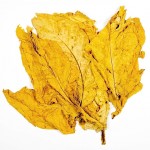What’s going on with the Tobacco Commission? Gov. Terry McAuliffe wants to know and is asking for a detailed accounting of its finances over the past five years.
The Tobacco Indemnification and Revitalization Commission, created in 1999 with a $1 billion endowment from lawsuit settlements with four major tobacco companies, has been under the gun for years.
The idea was that Virginia would take its settlement from a $206 billion nest egg 46 states won from Big Tobacco and put it to good use. Some states allocated their share solely for health concerns and to convince people, especially children, not to start smoking.
Virginia used part of its funds for this, but also created a slush fund supposedly for economic development in counties affected by changes in the tobacco economy from Southside to Southwest Virginia that grew bright leaf and burley tobacco.
The commission has always operated in a kind of “Andy of Mayberry” fashion without much oversight and that has caused some big problems. The worst was in 2010 when former state Finance Secretary John W. Forbes and later commission head was convicted of using $4 million in tobacco money for personal purposes, like fixing his house.
A 2011 report by the Joint Legislative Audit and Review Commission gave the commission mixed reviews, noting that some projects it funded made sense but others did not.
JLARC praised the commission for its worker training programs and helping expand high speed broadband to rural areas. But it said that the commission needed a better and more sophisticated way of tracking the impacts of projects it funded. Two years earlier, a commission headed by former Gov. Gerald E. Baliles had come up with some similar findings but the commission adopted only eight of 22 of them. One of the Baliles’ recommendations was to have a JLARC study made of the commission but it was not pursed at the time.
One area of concern for the McAuliffe administration is the $20 million in grants provided to Liberty University’s Center for Medical and Health Services spent over the past two years when the commission was making less than $60 million on interest payments.
One could argue that having a medical center in Lynchburg would help residents in Southside but another issue is that Liberty, founded by fundamentalist Protestant preacher Jerry Falwell, is a religious institution. The late Falwell was a major political player. The school is starting an osteopathic medical school which is interesting since it chose not to found a traditional one, although osteopathic doctors receive much the same training as medical doctors.
Speaking of politics, the co-chairman of the tobacco commission is Terry Kilgore, a Republican politician. By coincidence, his twin brother, Jerry, is a former attorney general, gubernatorial candidate and a lawyer for Jonnie R. Williams Sr., the former head of Star Scientific and the man who paid or gave now-indicted former Gov. Robert F. McDonnell and his wife Maureen more than $160,000 in gifts.
At one point, Williams who has not been indicted in the GiftGate matter and is expected to be an important prosecution witness against the McDonnells, tried to push for tobacco commission help with his nicotine-based dietary supplements.
There could be a political motivation with McAuliffe’s query but the tobacco commission has always been a ripe target for good reason.
N.B. Maurice Jones, McAuliffe’s nominee for Commerce Secretary and the former publisher of The Virginian-Pilot, has been targeted by a probe by the U.S. Department of Housing and Urban Development for possible improper lobbying while he was a HUD deputy secretary. It appears there will be no criminal charges but the Jones matter will be part of a Capitol Hill hearing today. Republicans are certain make some political hay out of the matter. Full disclosure, I worked part time for Richmond’s Style Weekly (still do) when Jones was Pilot publisher and oversaw Style. I know him personally.



